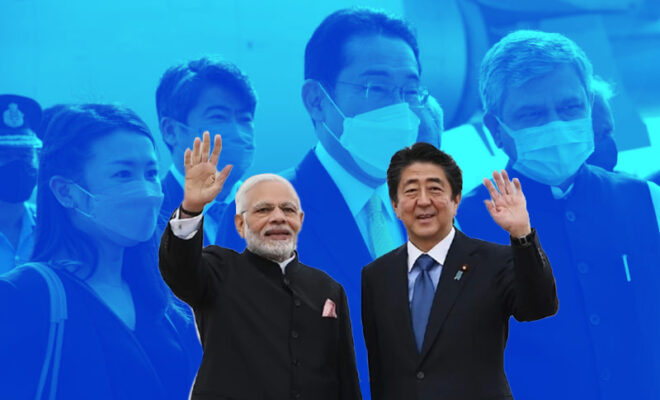Japan’s PM Arrives India, May Discuss Trade And Defense

Prime Ministers Narendra Modi and Fumio Kishida are scheduled to meet later in the day to discuss the G20 and G7 presidencies of Japan and India, respectively.
Fumio Kishida, the prime minister of Japan, landed in Delhi on Monday morning to discuss ways to strengthen bilateral cooperation in a variety of areas, including high technology, commerce, and investment.
Prime Ministers Narendra Modi and Fumio Kishida are scheduled to meet later in the day to discuss the G20 and G7 presidencies of Japan and India, respectively.
During the visit, the Japanese prime minister is expected to present his vision for an “open and free” Indo-Pacific,” with an emphasis on India’s expanding significance for the area.
The extensive discussions between PM Modi and PM Kishida are anticipated to touch on the shifting security environment in the Indo-Pacific against the backdrop of China’s growing military ambition.
It is anticipated that the visit of the Japanese prime minister will take about 27 hours. He is scheduled to present his “Free and Open Indo-Pacific Strategy for Peace” in the afternoon at a prestigious think institution.
The strategy is anticipated to emphasize India’s importance to the Indo-Pacific region.
In his keynote address at the famous Shangri-La Dialogue in Singapore in June of last year, Prime Minister Kishida promised to outline the Indo-Pacific strategy in the spring.
By next spring, I will present a “Free and Open Indo-Pacific Plan for Peace” that will support Japan’s efforts to advance the idea of a free and open Indo-Pacific, with a focus on providing patrol vessels and improving maritime law enforcement capabilities, in addition to cyber security, digital and green initiatives, and economic security, he had stated.
The plan is anticipated to include specifics regarding Japan’s attitude and policy towards the Indo-Pacific.Recently, nearly all of the major powers revealed their plans for the Indo-Pacific.
Japan has argued for an open and free Indo-Pacific in order to uphold and strengthen the rules-based international system.



